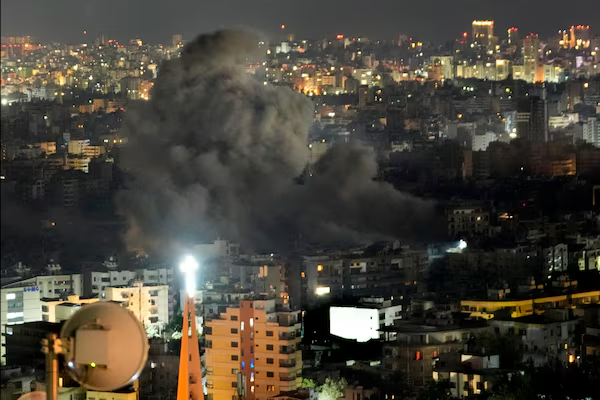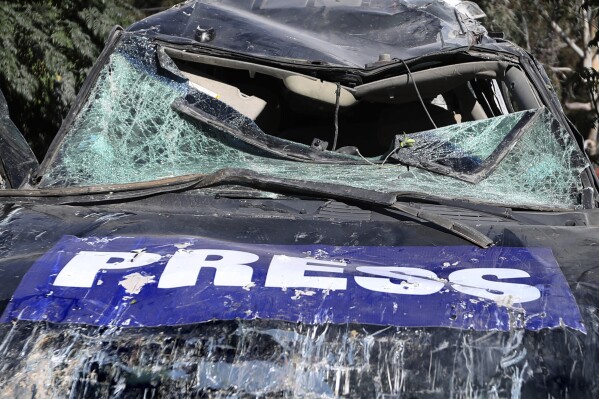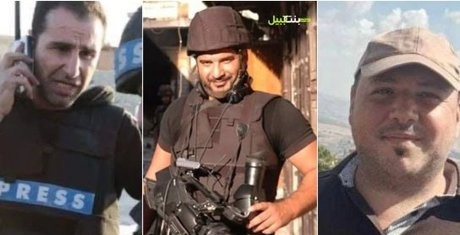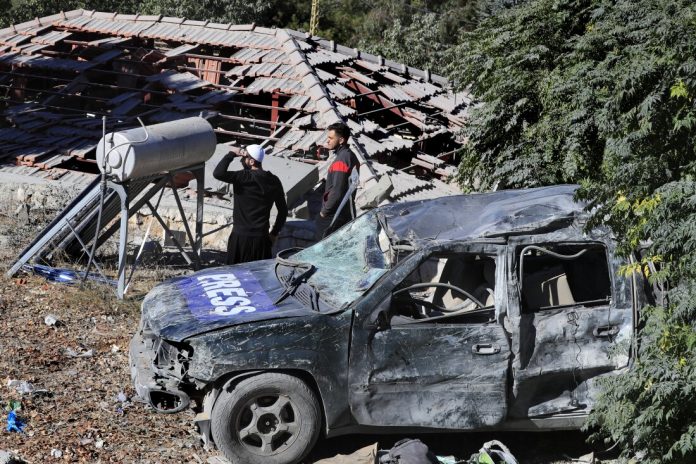Israeli airstrikes killed three journalists in southern Lebanon on Friday, Lebanon’s Health Ministry reported. The United Nations warned that the ongoing strikes on Lebanon’s Jousieh border crossing with Syria are blocking routes for refugees fleeing the escalating conflict. Following a month of military action that Israel launched in response to Hezbollah cross-border rocket attacks, U.S. Secretary of State Antony Blinken emphasized the urgent need for diplomatic efforts to prevent a prolonged Israeli campaign in Lebanon. Israel asserts its aim is to neutralize Hezbollah, a well-armed, Iran-backed group, to enable the safe return of northern Israeli evacuees.
The ongoing conflict traces back to the October 7, 2023, attack by Hamas on Israel, which also catalyzed Israel’s major offensive in Gaza, where recent Palestinian reports indicate that Israeli airstrikes killed over 70 people since Thursday night. Beirut officials have reported that Israel’s Lebanon campaign has resulted in more than 2,500 Lebanese casualties, displacing over 1.2 million people, and prompting humanitarian concerns.

The deceased journalists, Ghassan Najjar, Mohamed Reda, and Wissam Qassem, worked for Lebanese outlets known for pro-Iranian and Hezbollah-aligned perspectives. They were staying in Hasbaya, a town that had not previously been targeted, when the area was hit by an airstrike around 3 a.m. local time. Lebanon’s Information Minister, Ziad Makary, condemned the attack as a war crime. Al-Mayadeen and Al-Manar, which employ Najjar, Reda, and Qassem, reported the fatalities. Footage shared by Lebanese broadcaster Al-Jadeed showed vehicles marked “Press” damaged by the strikes, with other journalists describing the close, low-flying aircraft and missiles before the attack.
In a related development, the UN peacekeeping force in Lebanon, UNIFIL, reported that Israeli troops fired upon one of its observation posts in Dhayra, leading peacekeepers to vacate the post. Israel’s previous targeting of UNIFIL sites has led to international criticism, although the country denies deliberately attacking the force.
Israel also reported strikes on weapon production facilities and Hezbollah intelligence centers in Beirut, along with positions at the Jousieh border crossing, a route reportedly used by Hezbollah to transfer weapons into Lebanon. Lebanese Transport Minister Ali Hamieh stated that the strike had rendered the Jousieh crossing unusable, leaving only one northern route to Syria open, affecting the ability of civilians to escape the hostilities.

The UN refugee agency UNHCR highlighted its concerns over the strikes’ impact on the refugee exodus, as nearly 430,000 people have crossed into Syria since the conflict’s escalation. Lebanese routes to Syria had previously provided critical pathways for Syrians fleeing civil war and now serve as escape routes for those seeking safety from the intensified Israel-Hezbollah conflict. UNHCR spokesperson Rula Amin emphasized that these strikes endanger civilians by hindering access to safety.
The Israeli military action against Hezbollah followed a year of escalating tensions across the Israel-Lebanon border. Hezbollah intensified its engagement after Hamas’s October 7 attack, conducting cross-border strikes starting on October 8 in solidarity with Hamas. Blinken, speaking from London, reiterated the need for a diplomatic solution and full implementation of United Nations Security Council Resolution 1701, which would establish security along the Israel-Lebanon border, allowing displaced civilians to return.
While Hezbollah continues its operations despite the recent death of leader Hassan Nasrallah, Israel reported casualties within its ranks, including ten soldiers killed in combat in Lebanon. In an operation in a Lebanese village near the Israeli border, the Israeli military claimed to have found an underground Hezbollah command center, along with an arms storage site containing Kornet anti-tank missiles and other weapons.
Efforts to secure a ceasefire in Gaza are intensifying. Washington has urged that the death of Hamas’s Yahya Sinwar, linked to the October 7 attacks, could serve as a catalyst for peace negotiations. U.S. and Israeli diplomats are set to convene in Doha in an effort to resume talks for a potential ceasefire and negotiate the release of hostages held in Gaza. Hamas confirmed a delegation led by chief negotiator Khalil Al-Hayya arrived in Cairo for discussions with Egyptian officials.

Jordanian Foreign Minister Ayman Safadi, also in London, expressed alarm over the situation in Gaza, describing it as “ethnic cleansing” in northern regions, a claim Israel denies, asserting it is separating civilians from Hamas fighters and relocating them to safer zones. Safadi added that the ongoing violence needs to cease, stating, “Guns have to go silent,” calling for a halt to the intensifying humanitarian crisis across the region.




